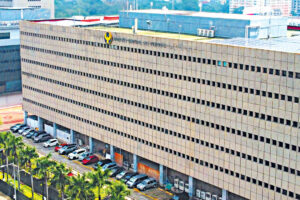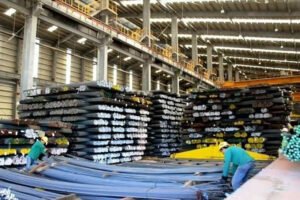Declining inflation and dealing with trade diversion

Over the last two weeks, the Philippine Statistics Authority (PSA) released the country’s inflation rate for March 2025 and unemployment rate for February 2025. There is good news in the former, as last month inflation was only 1.8% so the average inflation rate in the first quarter (Q1) 2024 of 3.3% went down to 2.3% in Q1 2025. This is similar to the Q1 2025 results of South Korea, whose inflation rate was 2.1%, Taiwan’s 2.2%, and Germany’s 2.3%; and it was lower than Vietnam’s 3.2% and the US’ 2.7%.
Meanwhile, our January-February 2025 average unemployment rate was 4%, lower than China’s 5.3%, Italy’s 6%, Germany’s 6.2%, and Canada’s 6.6%, but higher than the average unemployment rate of Japan, Taiwan, Malaysia, Korea, and Hong Kong (see the table).
In a Viber message, Budget Secretary Amenah F. Pangandaman expressed optimism that “Government spending has helped stabilize the country’s unemployment rate at 3-4% and inflation rate at 2-3% because important sectors like hard infrastructures are prioritized, these projects further improve our people’s productivity, work efficiency, and overall income.”
REDUCE THE BUDGET DEFICIT, SMUGGLINGWe still need to reduce that high annual budget deficit of P1.5 trillion a year. There is a need for further increases in revenues and control in overall spending. Smuggling and illicit trade are among the big holes in revenue generation — they need to be plugged and minimized.
Last week, on April 7, President Ferdinand R. Marcos, Jr. and Department of Finance (DoF) Secretary Ralph G. Recto led the public condemnation of P3.26 billion worth of vape products that had been seized and forfeited by the Bureau of Customs (BoC) and warned the public against smuggling.
In a press statement, Mr. Recto commended the BoC “on its stronger and stricter crackdown on smugglers. Our fight against smuggling goes beyond just border protection. It is a defense of our economic integrity. By shutting down illicit trade, we protect our people’s access to affordable goods and boost our revenue collections that allow the government to provide more public services to Filipinos.”
This was a good move by the BoC and DoF. But I think that aside from the enforcement of existing anti-smuggling laws, there is a need to change existing tax laws that make the prices of legal products near prohibitive and the prices of illegal or smuggled products more attractive. The price differential between legal and illegal products becomes wider each year as the tax rates keep rising.
That is why in Senate and House Committee hearings on illicit trade last January and February (I was invited to the House and Senate Committee hearings and attended three times each), I argued that there is a need to cut the tax rate of tobacco products as a fiscal measure, as a means to raise tobacco tax revenues, and reduce the high incidence of smuggling.
TRADE DIVERSION AND POSSIBILITY OF DUMPINGThe longer there is uncertainty over the tariff rates imposed by the US and other major exporting countries, the more trade diversion will happen. By this I mean that as China’s exports to the US slowly decline, more cargo ships filled with Chinese goods will be diverted to other countries, especially in the ASEAN, with the goods offered at discounts.
This week, April 14-18, China’s President Xi Jinping will visit three ASEAN countries — Vietnam, Malaysia, and Cambodia. Expanded trade should be foremost on the agenda.
If China will sell more trucks and buses, tractors and harvesters, computers and gadgets, clothes and construction materials to the ASEAN, including the Philippines, at a discount, consumers here will be happy, and our inflation rate will further stabilize to 1-3%.
But our trade deficit with China will then increase further, from $18.5 billion in 2023 and $23.4 billion in 2024, to possibly $30 billion or higher in 2025. And many domestic manufacturers will complain of “dumping” and will lobby for higher anti-dumping tariff rates for China products.
I believe that we should prioritize consumer choice and freedom and a lower inflation rate. The increase in the merchandise trade deficit can be compensated for by having a non-merchandise trade surplus, like welcoming more Chinese tourists here.
Bienvenido S. Oplas, Jr. is the president of Bienvenido S. Oplas, Jr. Research Consultancy Services, and Minimal Government Thinkers. He is an international fellow of the Tholos Foundation.




